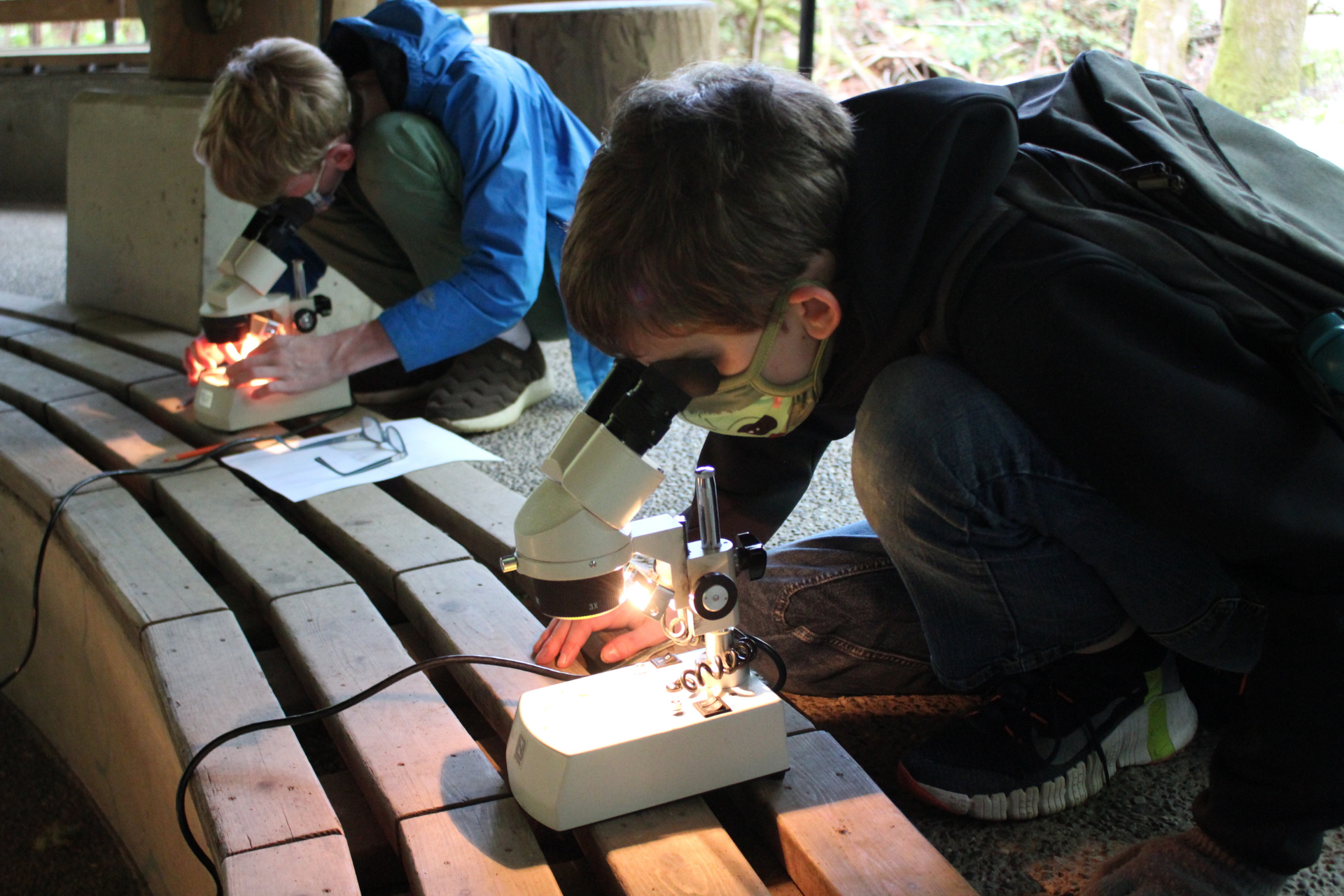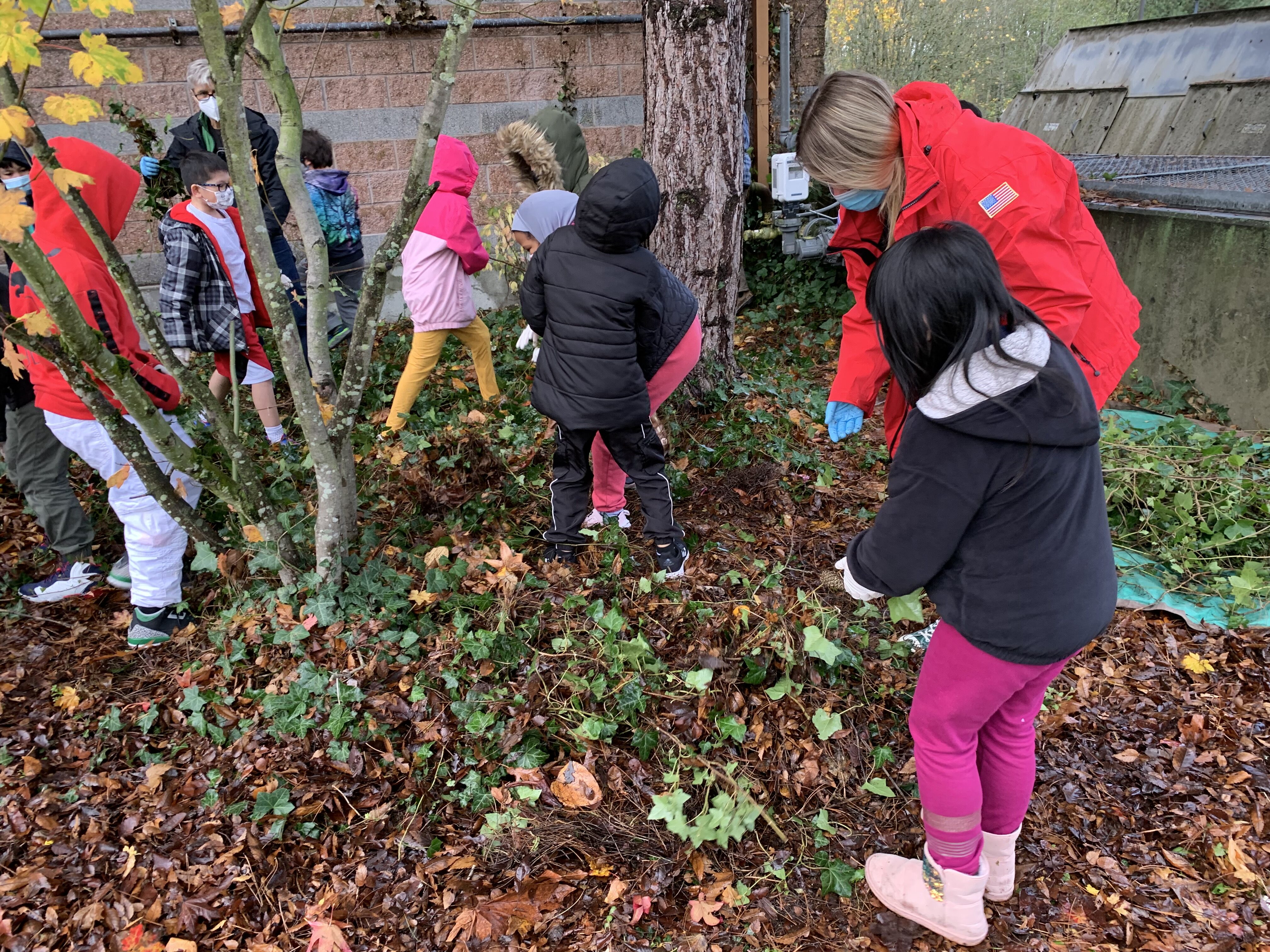Our work with teachers is critical in broadening our reach in the region.
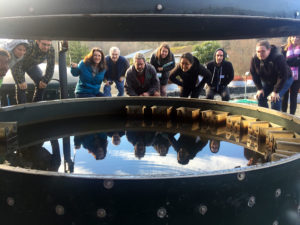
Teachers during a IslandWood professional development workshop before the Covid-19 pandemic.
During the 2020-2021 school year, more than 200 K-12 educators throughout the region participated in IslandWood’s teacher professional development courses and workshops. Funded through ClimeTime, a climate science learning project facilitated by the Office of the Superintendent of Public Instruction (OSPI), IslandWood’s professional development program is designed to support teachers in providing equitable, Next Generation Science Standards (NGSS)-aligned education experiences that center climate learning.
The recently completed external evaluation of the program, prepared by Aspect Research + Evaluation, is a testament to not only the extreme challenges of the past year, but the potential for innovation and growth even amidst constant change.
Just as the 200 teachers we served had to adapt during a year of immense uncertainty, so did our teacher professional development courses and workshops. Through collaboration, feedback, and reflection, our educators gained a deeper understanding of what teachers needed most last year, and what they’ll need heading into the upcoming school year.
Read on to learn more about the impact of IslandWood’s teacher professional development program, feedback and areas for growth, and ways you can support training for our region’s educators that deepens climate literacy and advances equity.
- By the Numbers
- 200 teachers participated in one or more of the 10 courses and workshops IslandWood offered during the 2020-2021 school year
- 94% of responding teachers made changes to their teaching after participating in IslandWood teacher professional development, including implementing lessons that utilized their schoolyards in a new way, incorporated local phenomena, or made community connections.
- 97% of teachers said they were likely or very likely to incorporate their schoolyard or local community into their classes next year.
- 91% of teachers felt more prepared to incorporate climate science into their teaching, versus only 41% prior to participation.
- 96% of teachers reported increased confidence in their ability to support equitable and just science education, up from 46%.
- 98% of teachers reported feeling knowledgeable about NGSS, up from 74%.
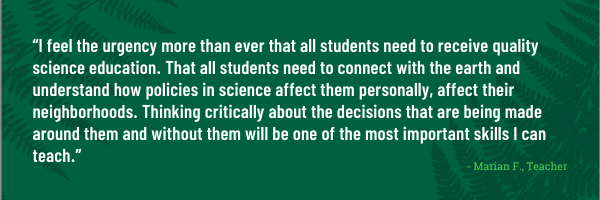
- What We Heard Worked
![[Image description: a close up photo of two people's hands. They are filling out worksheets on clipboards.]](https://islandwood.org/wp-content/uploads/2020/04/Copy-of-Poem-Instagram-Post-1-300x150.png)
Teachers during an in-person IslandWood professional development workshop before the Covid-19 pandemic.
- Increased capacity to incorporate climate science and students interests and identities into the classroom
- Consistently, teachers reported the greatest gains in understanding how to incorporate climate science into their teaching, as well as how to use science learning that centers students’ neighborhoods and local communities to support equity and connect to students’ interests, identities, and experiences.
- Changed approach to science teaching
- Many teachers reflected that, prior to participating in IslandWood’s courses and workshops, they had thought of science as a separate subject from others, like history, social studies, and art. Afterwards, teachers reported an increased appreciation of multidisciplinary, inquiry-based, and student-led science teaching.
- Deepened mindset & new strategies to support antiracist education
- Teachers appreciated the focus on antiracist science education, particularly in our winter and spring courses. Many teachers reported leaving these courses with a sense of urgency and an understanding of concrete actions they could take to advance justice and teach through an antiracist lens. Several white educators reflected on the fact that IslandWood’s courses helped them re-evaluate their preconceived notions of science as an “apolitical” subject that did not need to incorporate social justice or be taught through an antiracist lens.
- Greater engagement and enjoyment from students
- Teachers reported seeing greater engagement and excitement from their students after incorporating learnings from IslandWood courses that made their teaching more inquiry-based, student-led, and connected to real-world environmental issues in students’ own communities. Students also reported increased enjoyment of their science classes, and increased knowledge about their local neighborhoods.
- Increased capacity to incorporate climate science and students interests and identities into the classroom
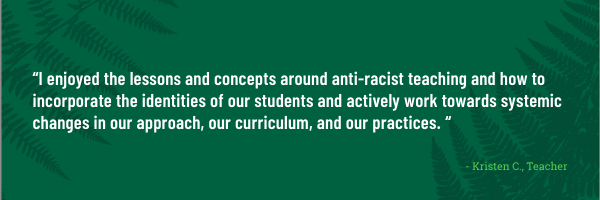
-
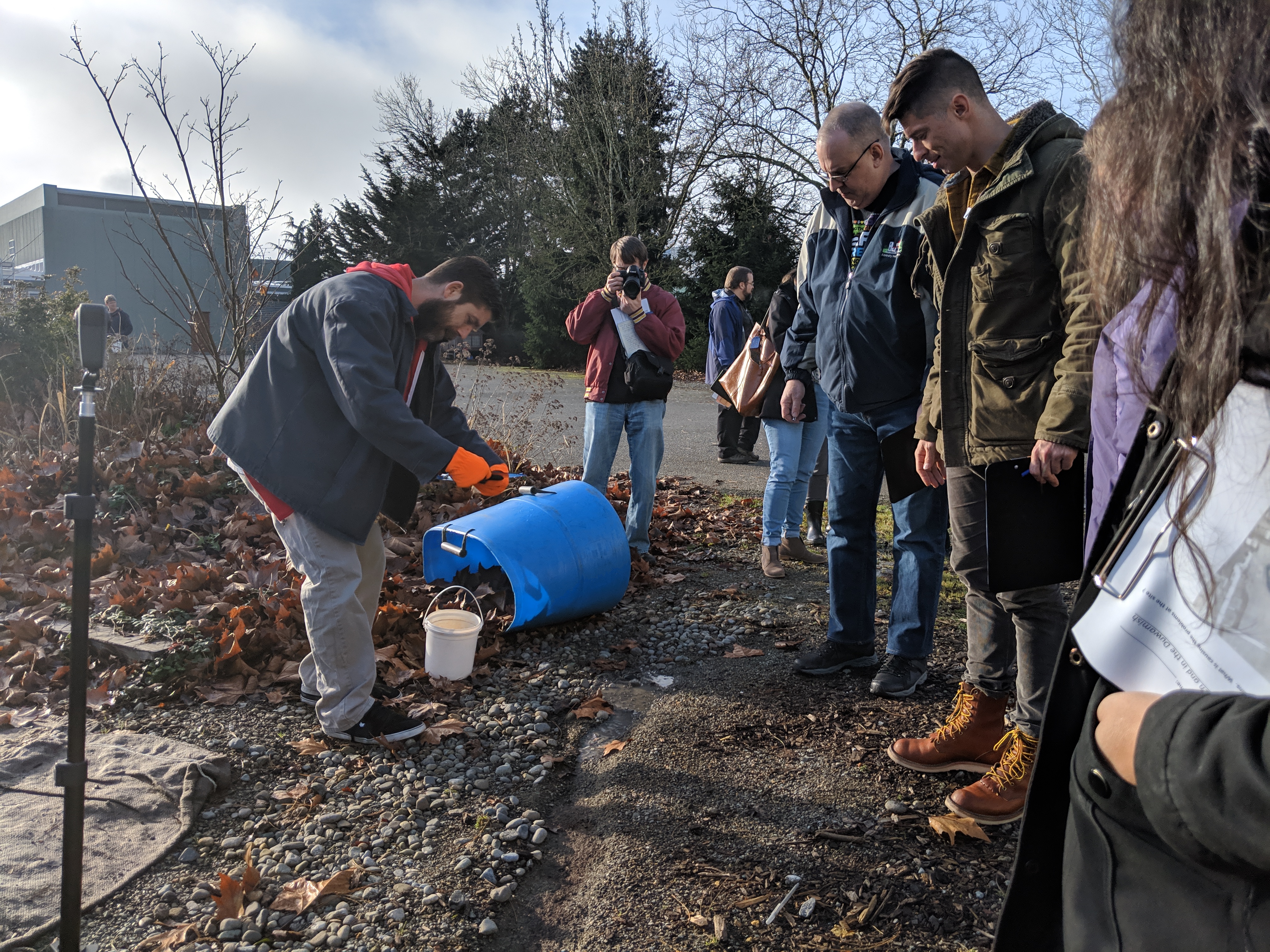
Teachers observing an experiment during an in-person IslandWood teacher professional development workshop prior to the Covid-19 pandemic.
What We Heard Could Improve
- Provide additional examples of what antiracist science teaching looks like in practice, and offer workshops and courses that focus explicitly on antiracism.
- Focus on hiring Black, Indigenous, and People of Color (BIPOC) educators and inviting BIPOC activists and families to share their work and perspectives.
- Incorporate more collaborative planning time, opportunities to hear from all group participants, and ready-to-use units into courses.
- Provide greater flexibility in the timeframe teachers are given to complete courses.
- How We’re Responding
- As we continue to reflect on ways to adapt our program to better serve teachers’ needs, our teacher professional development team already made several changes to course structure and content in response to teacher feedback during the 2020-2021 school year, including:
- More explicit use of the word “antiracist” in sharing and modeling strategies for racial equity in science education.
- Pairing strategies (such as antiracism, NGSS-alignment, and climate science connections) with specific lessons and units that teachers could implement in their classrooms.
- Increased collaboration with community partners, including a tribal member, a national park scientist, and four teacher facilitators, to represent a wider variety of perspectives in course creation and delivery.
- As we continue to reflect on ways to adapt our program to better serve teachers’ needs, our teacher professional development team already made several changes to course structure and content in response to teacher feedback during the 2020-2021 school year, including:
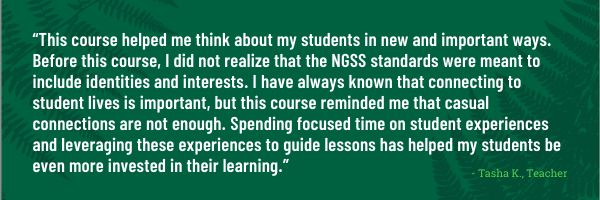
- How You Can Get Involved
- Ensuring that teachers have access to professional development opportunities is a necessary step in inspiring positive action for our communities and the planet. We invite you to reach out to your representatives to urge them to continue to prioritize funding the ClimeTime, which helps make these opportunities possible!
- If you’d like to learn more about our professional development program, or sign up to be notified when registration for this school year’s workshops and courses opens, click here.
- If you want to dive deeper into the impact of this past year’s professional development opportunities, check out the full evaluation here.

